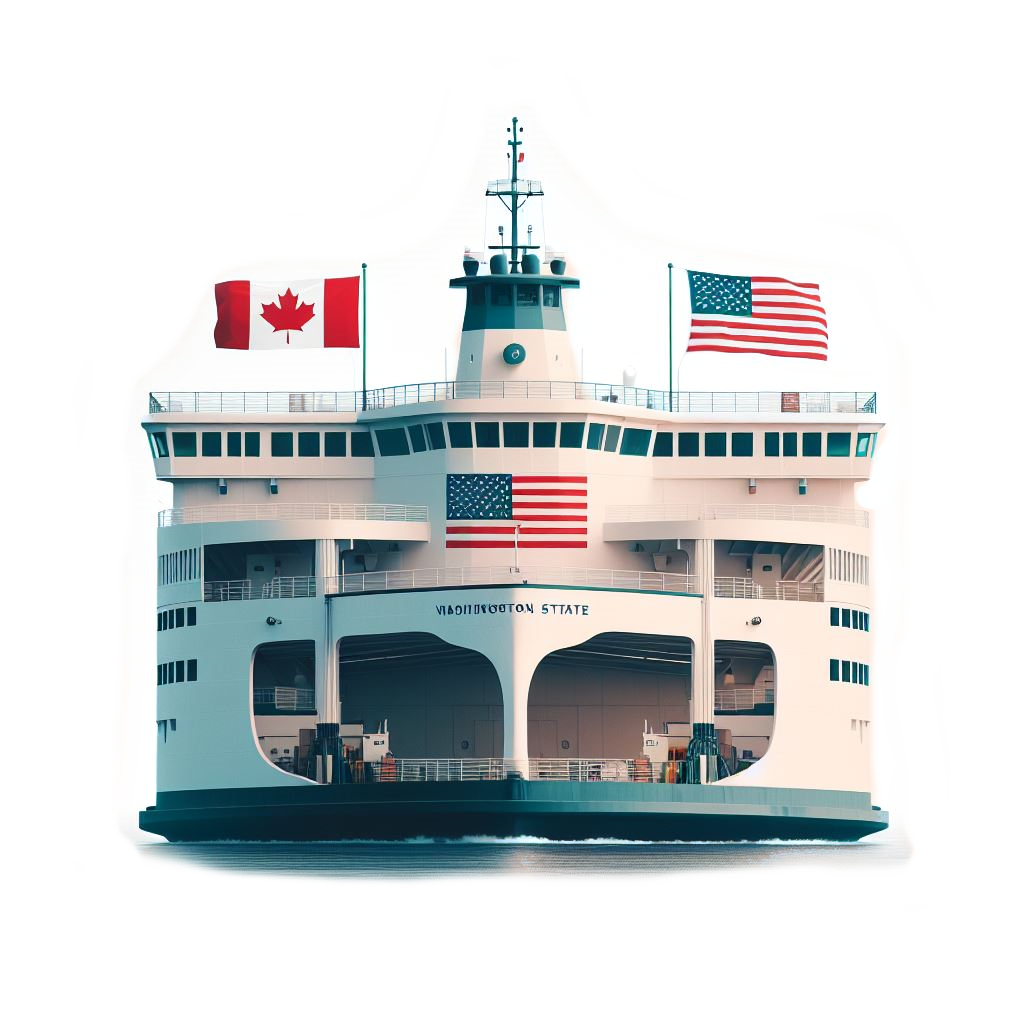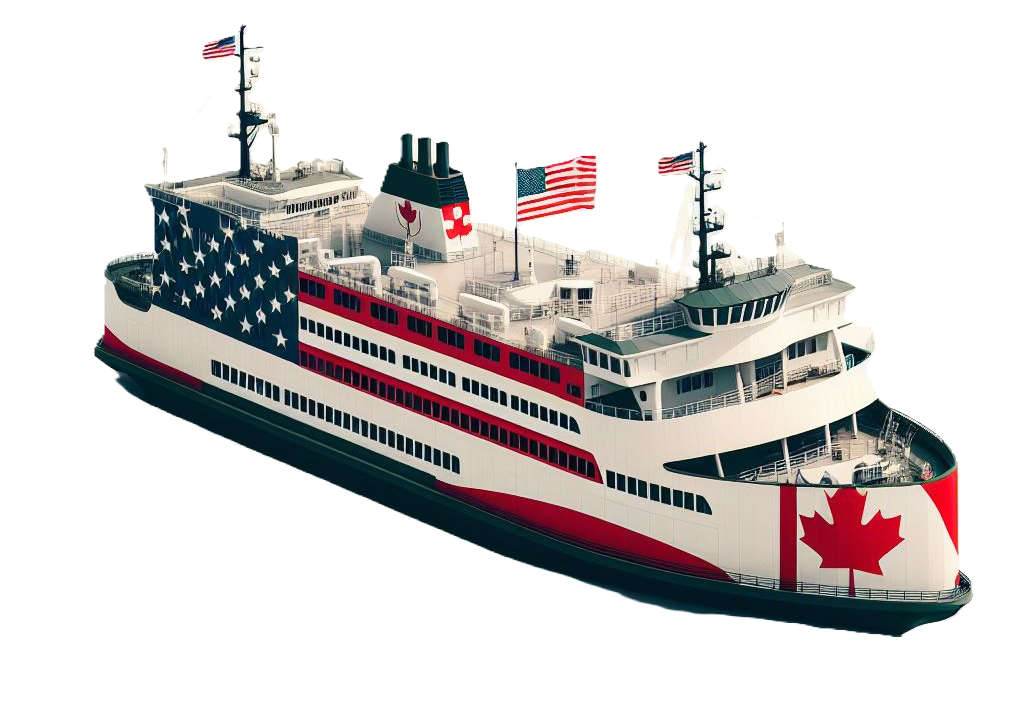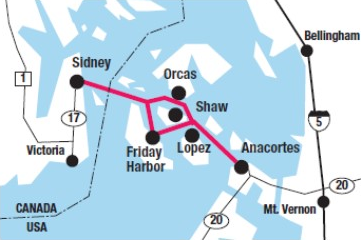About the Anacortes-Sidney Ferry
Since 1922, a ferry has run between Anacortes and Sidney, B.C. While previously the Anacortes-Sidney car ferry ran year-round, in recent years the route ran only seasonally, with twice daily trips between the two cities and daily stops in Friday Harbor.
Then the pandemic struck, causing and accelerating massive disruptions to Washington State Ferries' operations. Over the last few years, Washington State Ferries cut service throughout the system because of two reasons: (1) availability of crew and (2) availability of ferry boats. The Anacortes-to-Sidney ferry was one of the first casualties of the system changes, and the only route not reinstated since the pandemic. In February 2023, WSF announced that they don't anticipate being able to return the Sidney run to service until 2030, when sufficient numbers of new vessels are expected to join the fleet.
Negative reactions were swift—from state legislators, from affected cities, and from indigenous peoples across the Salish Sea.
- Legislators say no Sidney ferry 'unacceptable' (February 28, 2023)
- U.S. and Canadian First Nations call for return of Sidney-Anacortes ferry, CTV News (March 8, 2023)
Importantly, the Sidney ferry performed well financially in the Washington State Ferries system—in 2021, the Legislature's Joint Transportation Committee found that “the Sidney ferry is equivalent to many other runs within the system in terms of farebox recovery... nearly 58% more profitable than the Point Defiance–Talehquah run.” Additionally, Vancouver Island's population is projected to double in the next 20 years, which will likely lead to even more utilization (and farebox recovery) of the international ferry run. The Anacortes-Sidney ferry is more important now than ever!
Why the Sidney Ferry is important
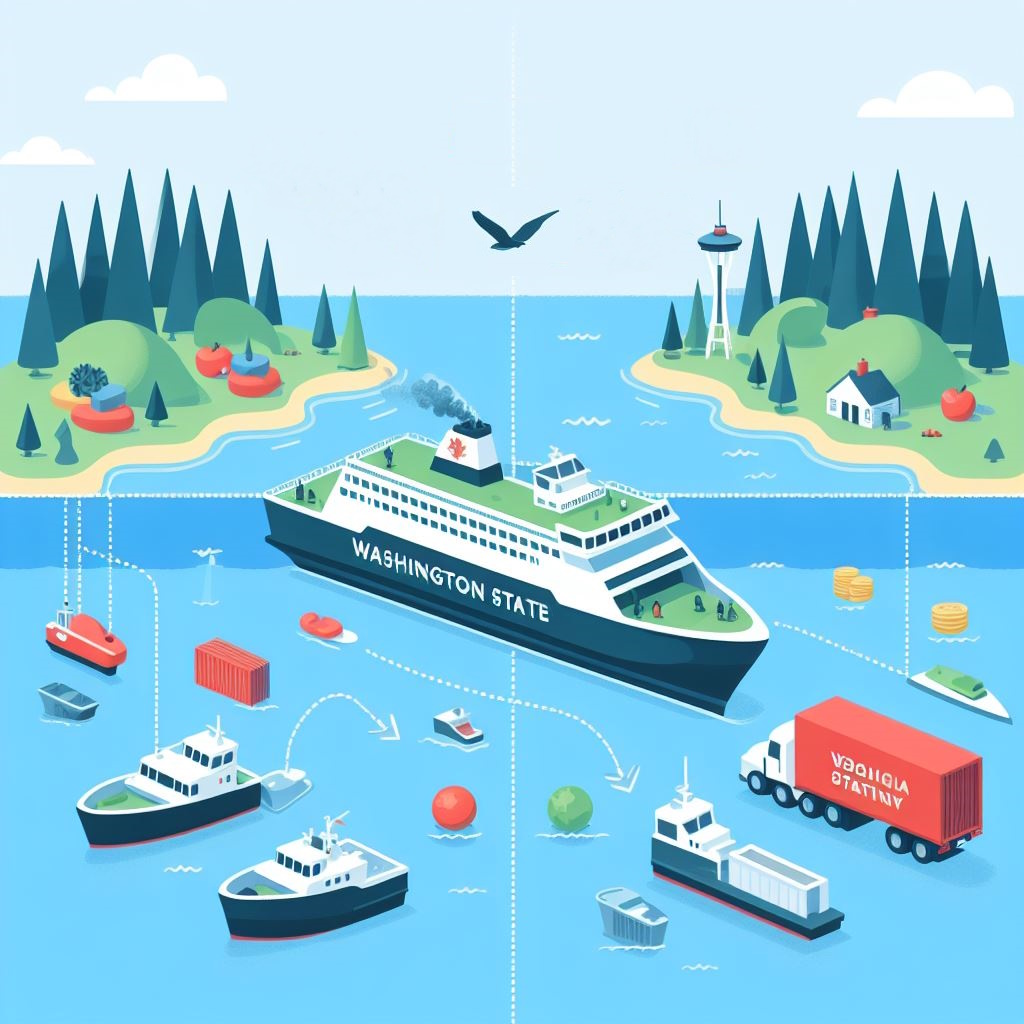
Economies
The economies of Sidney, Anacortes, and the San Juan Islands are intertwined with the Anacortes-Sidney ferry, which facilitates trade, tourism, and commuter travel. The ferry brings about $40 million a year to the region and supports 400 jobs.
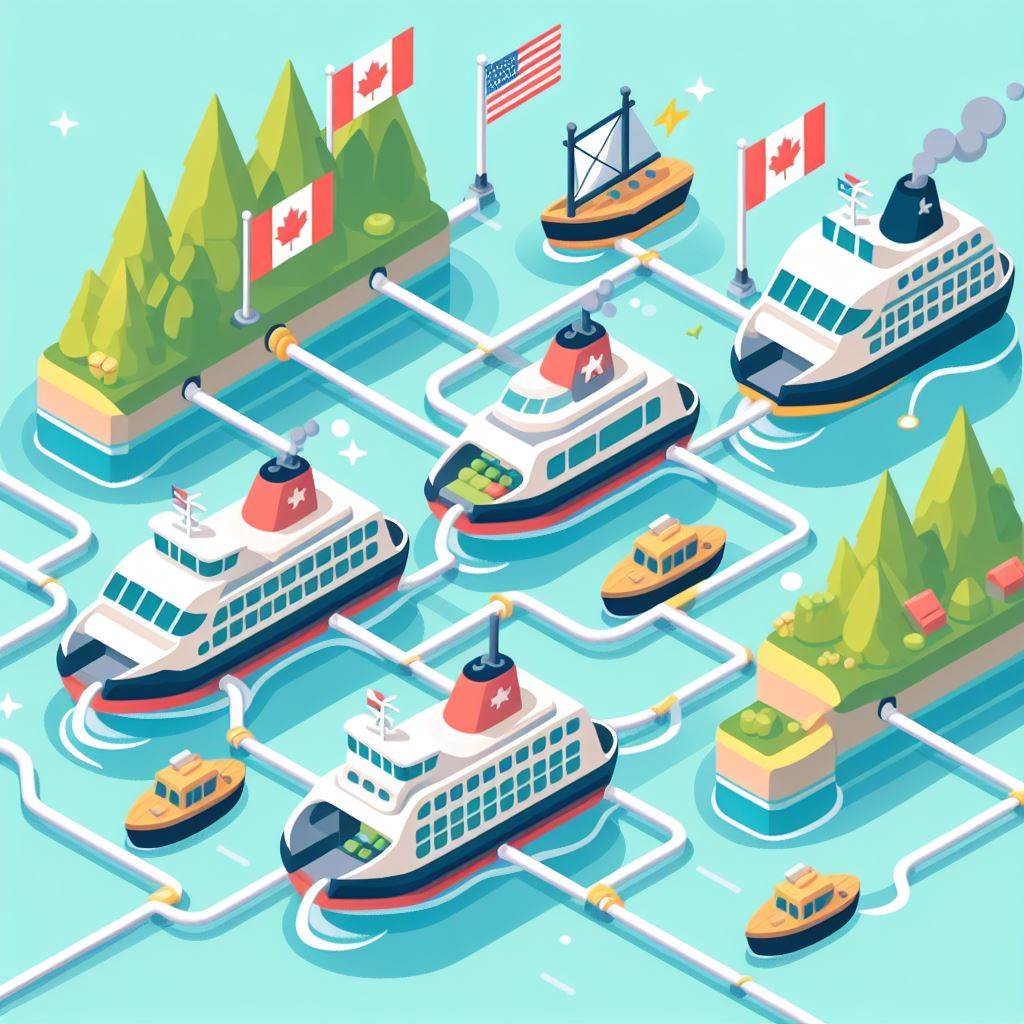
Reliability
Especially during the busy summer season, having the international ferry in the San Juan Islands creates more flexibility and redundancy when a ferry goes out for repair or maintenance. While other ferry routes can be bypassed by driving, in the San Juans there are few good options for residents to get to work, school, or medical appointments when ferries are out of service.

Families
People have been building families across the Salish Sea since time immemorial. Coast Salish peoples settled on Fidalgo Island, the San Juan Islands, and Vancouver Island. The Anacortes-Sidney ferry run is the only ferry between all these places—one that families rely on.
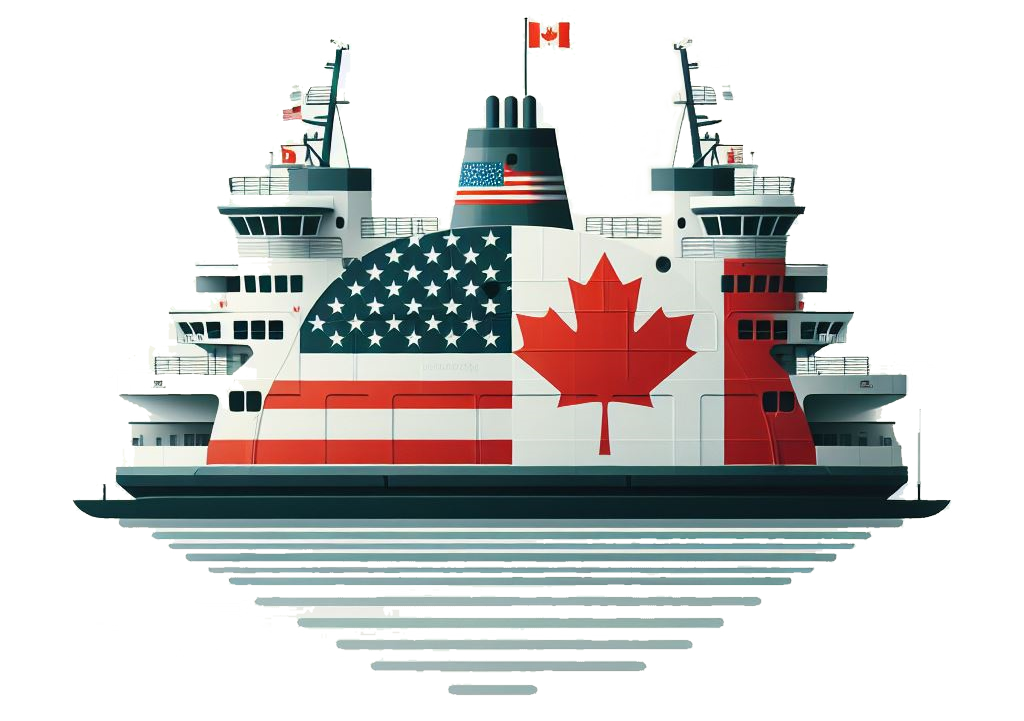
Sister Cities
Anacortes and Sidney have been valued sister cities since 1996, united in their similar size, industries, and shared celebration of the arts.
Founded by President Dwight D. Eisenhower in 1956, Sister Cities International is a nonpartisan nonprofit that promotes peace and understanding through people-to-people relationships in over 300 member communities with over 2,000 partnerships in more than 140 countries. Anacortes has five sister cities and strongly values its relationship with each.
Why is the Sidney ferry important to you?
Add your story by signing our petition.
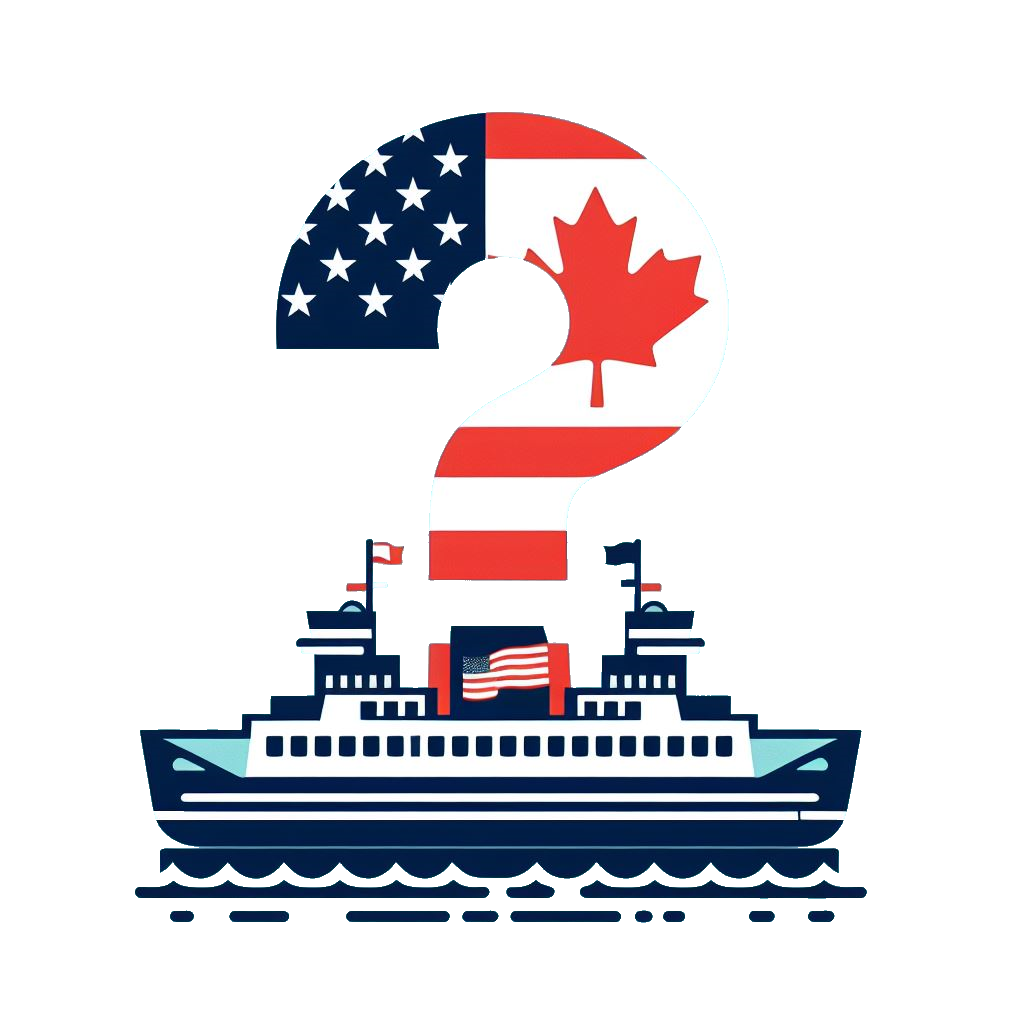
What do we do now?
Build, build, build. The current fleet does not have enough boats to provide service to all routes, and the Sidney route will be the last to be restored. After building no new boats in 20 of the last 30 years, in 2023 the State Legislature appropriated money for construction of five new boats, thanks to new revenue from the state's Climate Commitment Act. It authorized building vessels concurrently at one or two shipyards, and it changed the law to allow WSF to solicit shipbuilders nationwide, opening up competition and potentially lowering prices.
At the end of May 2024, WSF issued an invitation to bid on construction of up to five new 160-car ferries, with two to be built immediately, and three more to be built in subsequent years. WSF expects to take delivery of those ferries in 2028, 2029, and 2030. It will then solicit bids to replace three 124-car Issaquah-class boats that will be 50+ years old.
The Legislature must continue to authorize funding, as much and as quickly as possible, at a sustained pace over many years, to construct these planned vessels and more into the future, as old vessels reach end of life. The sooner we restore our full fleet, the sooner WSF can return to full service.
Build SOLAS boats. The 50+ year old Chelan is currently the only boat in WSF's fleet that is built to the Coast Guard's SOLAS standards, required for a ferry to run in international waters. While it can be restored to SOLAS certification when it's available for the international run, it will still need to be retired in the near future. WSF is planning to retrofit another existing ferry to SOLAS standards, and we must ensure that happens.
Keep showing our support for the Anacortes-Sidney route! While WSF works to solve the twin problems of vessel and crew availability, let's keep the international run at top-of-mind for decision- and policy-makers. Show your support and tell your story by signing on with this two-minute form.
What about...
In 2023, the State Legislature directed WSDOT to look for a foreign or domestic vessel to reinstate the Sidney ferry sooner than 2030. The resulting report found no domestic vessels available for the Sidney run, but identified one potential foreign vessel—a partially completed Danish ferry has an arrangement and size that appear to be a reasonable fit.
At the urging of the City of Anacortes, as well as Representative Ramel and Senator Lovelett, Washington State Ferries thoroughly investigated the Danish boat option, but for a variety of reasons ultimately determined it would not work in the fleet: notably the vessel was not built to SOLAS standards, its keel was laid 13 years ago, it had spent an undetermined amount of time in the water, it would be incompatible with existing vessels for operation and maintenance, and it uses an alternative propulsion system unfamiliar to WSF crews. Federal funds could likely not be used to maintain a foreign-built vessel. And finally, while those other issues might be surmountable, it likely would take longer to acquire, transport, redesign, complete construction, and recertify the vessel than it would to purchase entirely new domestic-built boats.
Moreover, a foreign ferry would not be as flexible as a domestic-built boat. The federal Jones Act and the Passenger Vessel Services Act regulate the use of foreign-built ferries inside the United States. Under 19 CFR 4.80, foreign-built vessels may not transport passengers between two US ports, but may embark passengers at a US point for disembarkation at a foreign port and vice versa. That means that a foreign-built ferry leaving Anacortes (and perhaps stopping in Friday Harbor to pick up passengers) would be prohibited from dropping off any passengers in Friday Harbor. The Sidney ferry most recently stopped in Friday Harbor on one sailing daily each way, and some of its value to the system of ferries serving the San Juan Islands is lost if it cannot stop in Friday Harbor.
Under the international Safety of Life at Sea (SOLAS) convention, the Coast Guard requires vessels in international waters to comply with certain minimum standards for construction, equipment, and operation. Only one boat in WSDOT's existing fleet, the Chelan, is built to SOLAS standards, and it's been re-assigned to commuter runs in Puget Sound. It will need to be recertified for SOLAS standards for it to return to the Sidney route.
It's critical that new state ferries be built (or existing ferries retrofit) to SOLAS standards so that when the 50+ year old Chelan is retired we still have at least one SOLAS ferry that can be used on the international run.
Washington State Ferries has been challenged by limited in-state shipyard capacity, both for new construction and ongoing repair of the existing (and aging!) boats in its fleet. The Legislature recently authorized WSF to seek shipyards to build boats outside the State of Washington, which means there's potential to build more boats faster at multiple shipyards simultaneously, and preserve in-state shipyard capacity for repair and maintenance work.
Some have suggested that WSDOT contract with a private ferry operator for vehicle or passenger-only service until WSF can restore full service with WSF boats. But two existing private ferry operators already operate that service to Victoria (the Coho car ferry from Port Angeles and the Victoria Clipper passenger ferry from downtown Seattle). It's not obvious how they could be incentivized to change their destinations to Anacortes and Sidney, nor how those boats would be made compatible with WSF's docks in Anacortes and Sidney. (The Coho loads from the side, not the ends.) For these reasons and others, this idea is a non-starter.
Washington State Ferries has been in touch with BC Ferries, but they're having the same issues that WSF is with crewing and keeping vessels going, even though they do build boats internationally. They don't currently have the capacity to add service when their customers are frustrated with their inability to always run their current schedule.
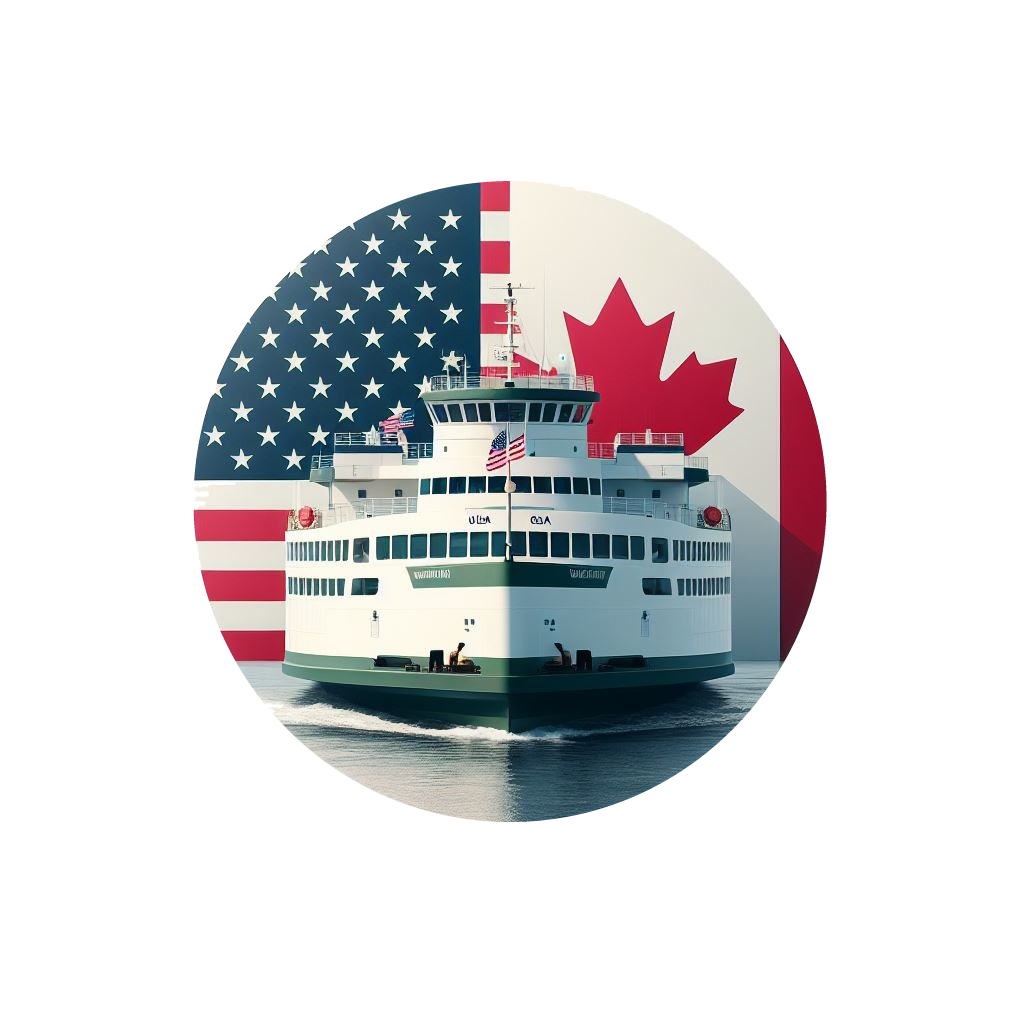
Statements & Letters
- Anacortes City Council 2024 Legislative Priorities
- Legislators say no Sidney ferry 'unacceptable' (February 28, 2023)
News
- Sidney mayor pens letter hoping to spur earlier return of Sidney-Anacortes ferry (May 17, 2023)
- Mayors call for new ferry for Anacortes-Sidney route Anacortes American (April 17, 2023)
- U.S. and Canadian First Nations call for return of Sidney-Anacortes ferry, CTV News (March 8, 2023)
- Anacortes-to-B.C. ferry delayed until 2030, Cascadia Daily News (March 4, 2023)
- Anacortes mayor says 7 more years of suspended B.C. ferry service is 'unacceptable', King 5 News (March 3, 2023)
- Anacortes-Sidney ferry route cancellation will change lives, MyNorthwest (March 2, 2023).
- 101-year-old Sidney-Anacortes ferry will not return until 2030, Capital Daily (March 1, 2023)
- No Sidney-Anacortes ferry for at least seven years, Victoria Times Colonist (March 1, 2023)
- ‘This is difficult news to receive’: Sidney to Anacortes ferry won’t return to service until 2030, Victoria Buzz (February 28, 2023)
- Will Anacortes-Sidney ferry return with belated centennial celebration?, MyNorthwest (May 4, 2022)
- Sidney ferry route in question, Anacortes American (September 20, 2020)
Resources
- E.D. Hovee & Company, LLC, Anacortes-Sidney Ferry Economic & Fiscal Impact Analysis (2020), commissioned for the Economic Development Council of San Juan County
- Passenger Vessel Services Act Informed Compliance Publication, U.S. Customs and Border Protection (September 2019)
- Jones Act Informed Compliance Publication, U.S. Customs and Border Protection (September 2020)
- RCW 47.60.330: WSDOT must receive approval from the Legislature to eliminate a ferry route
- Setting Sail: The First Trip on the Sidney-Anacortes Ferry—April 26, 1922, Anacortes Museum
